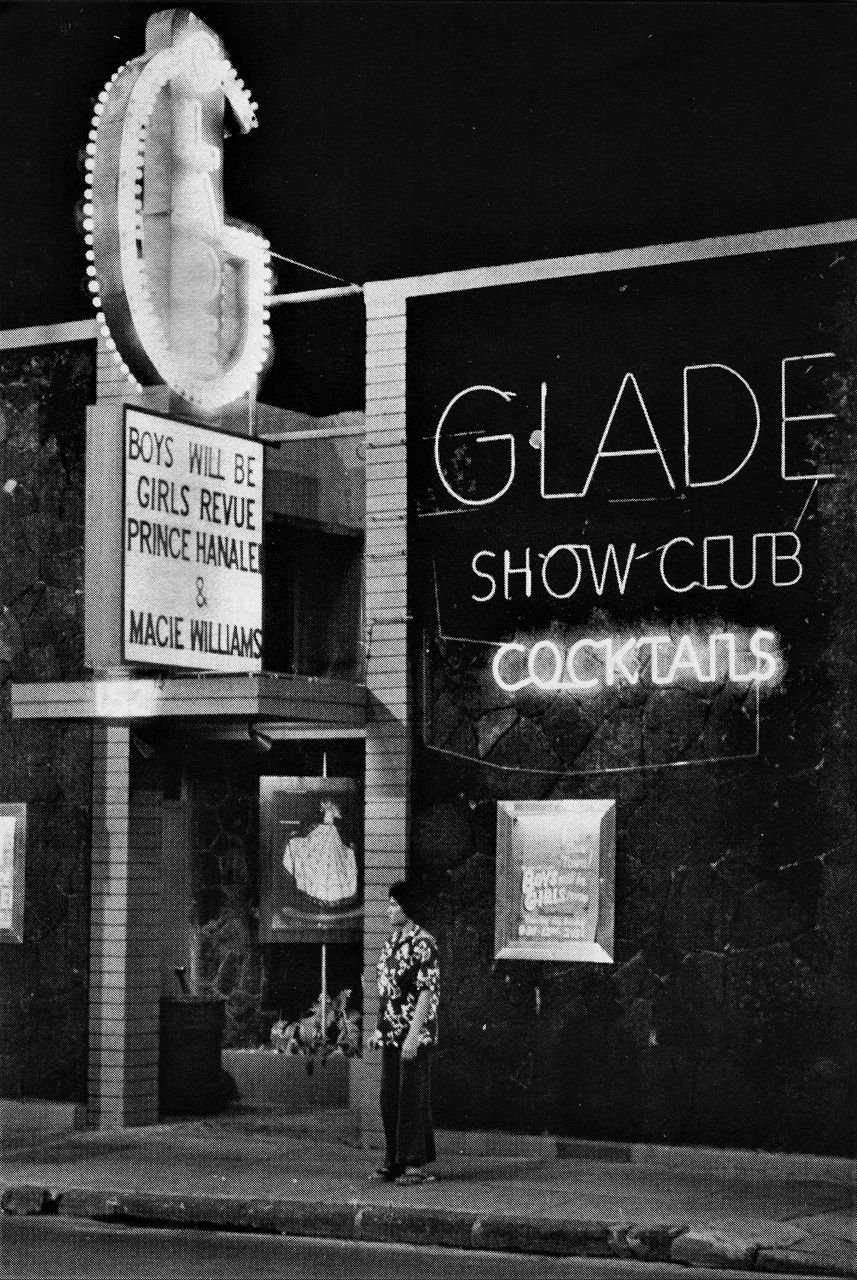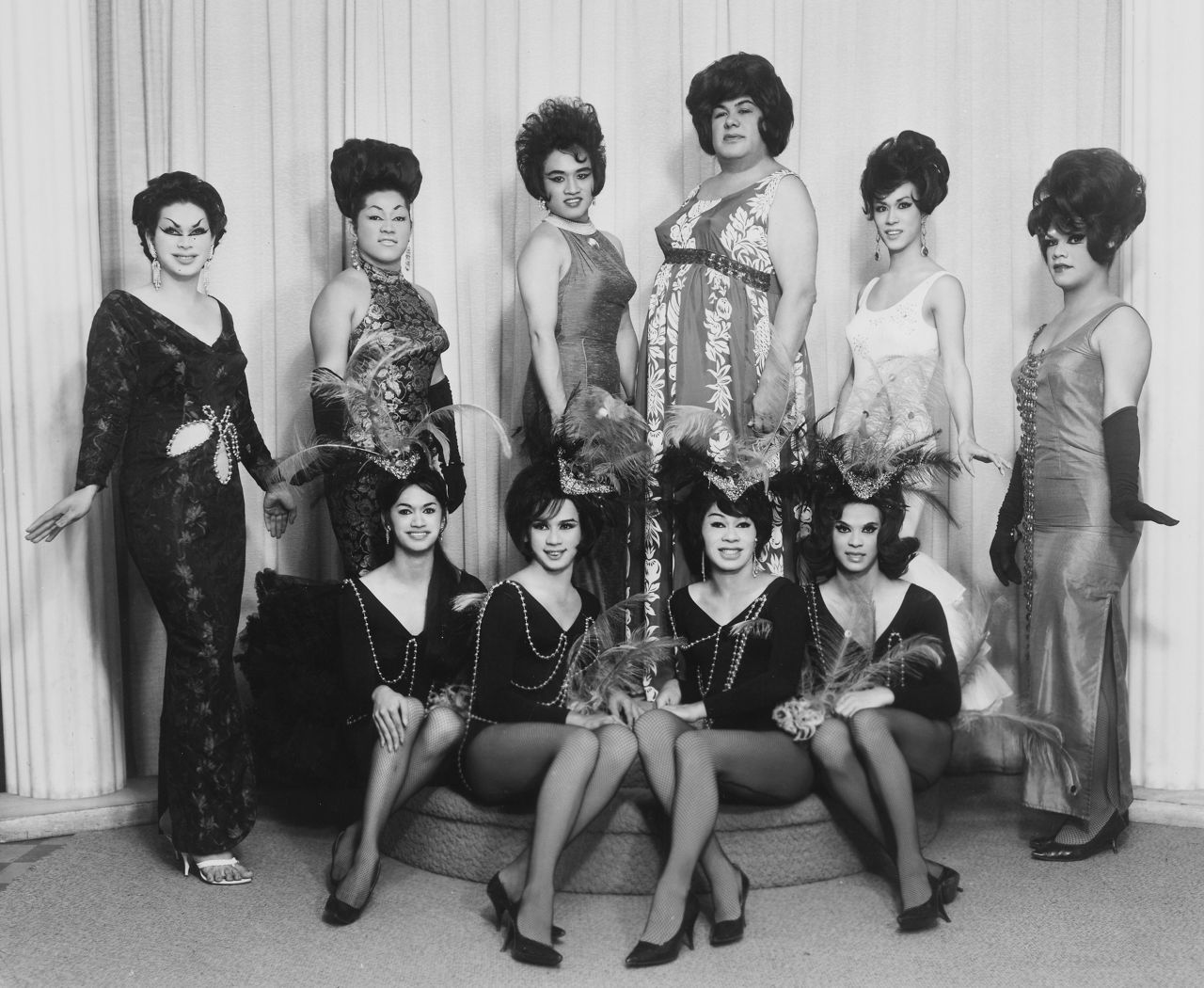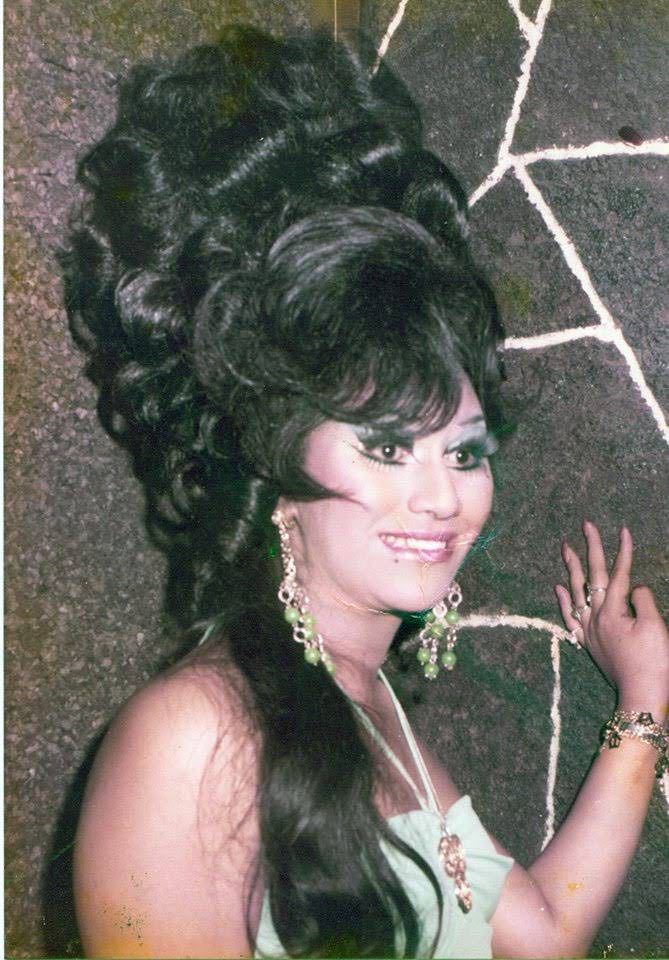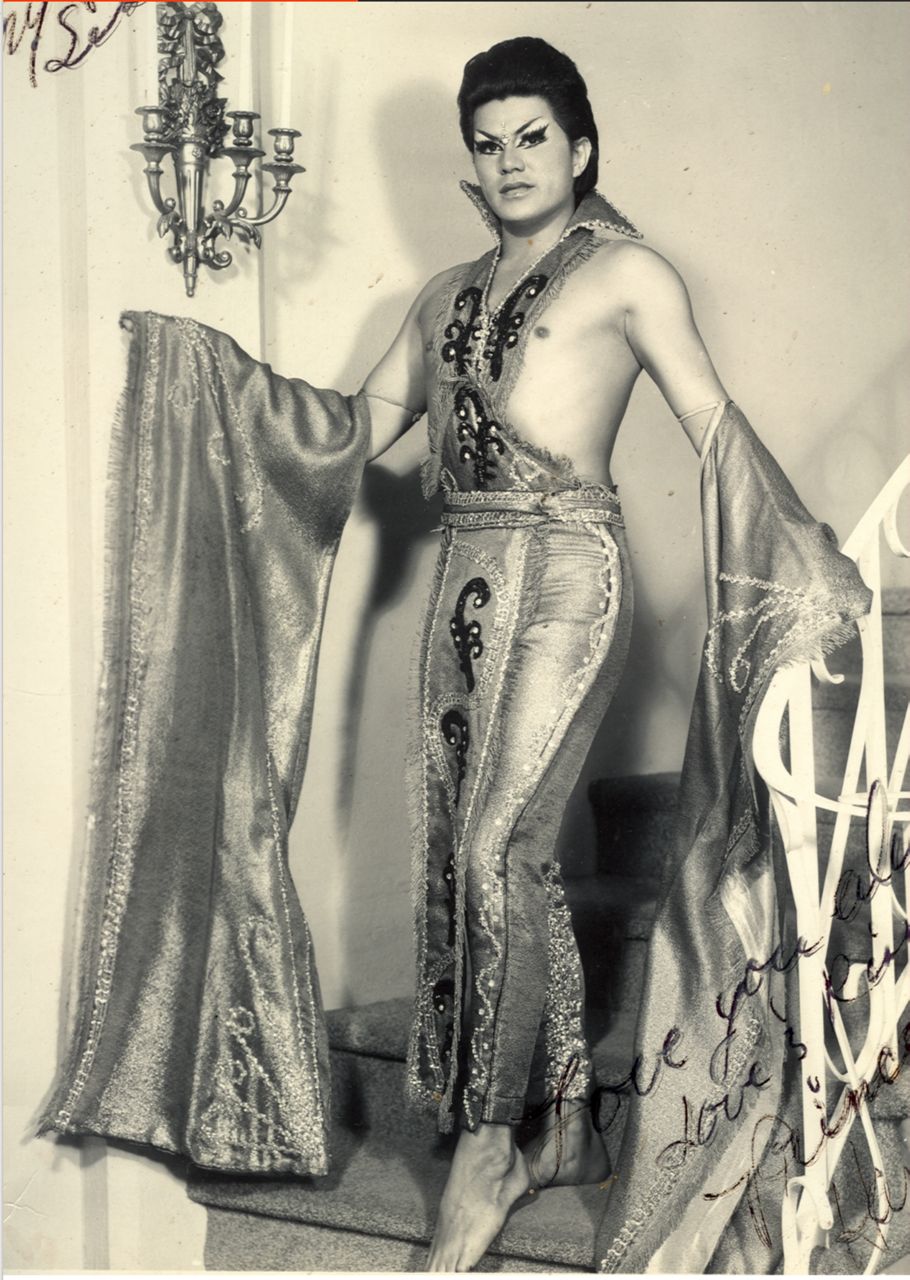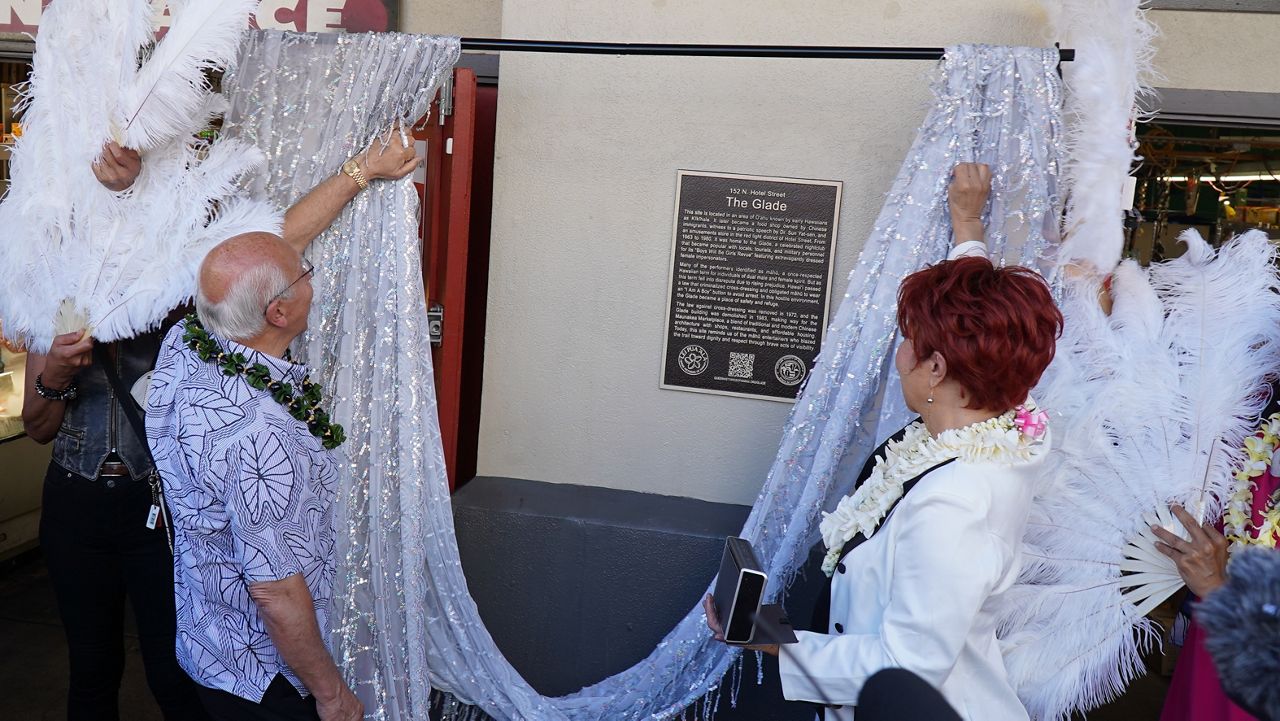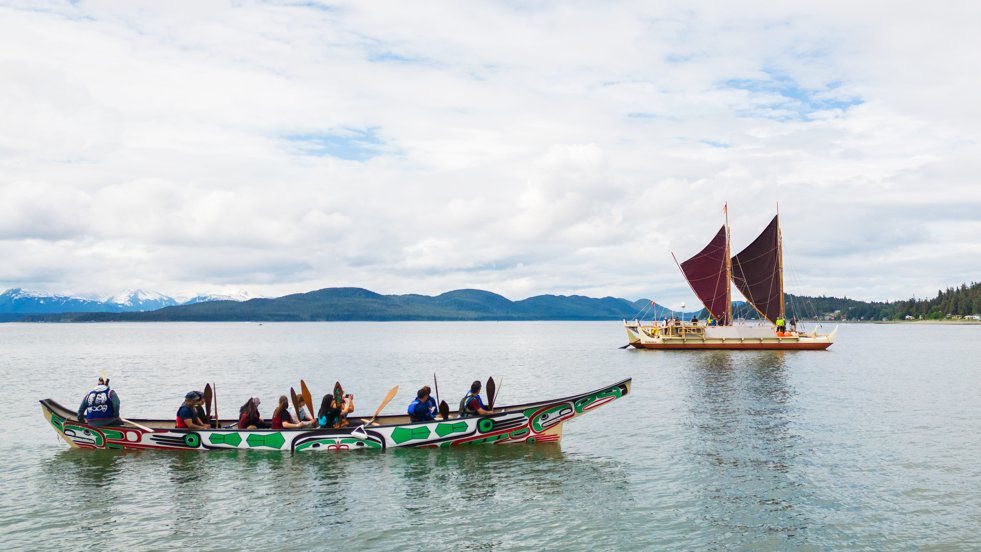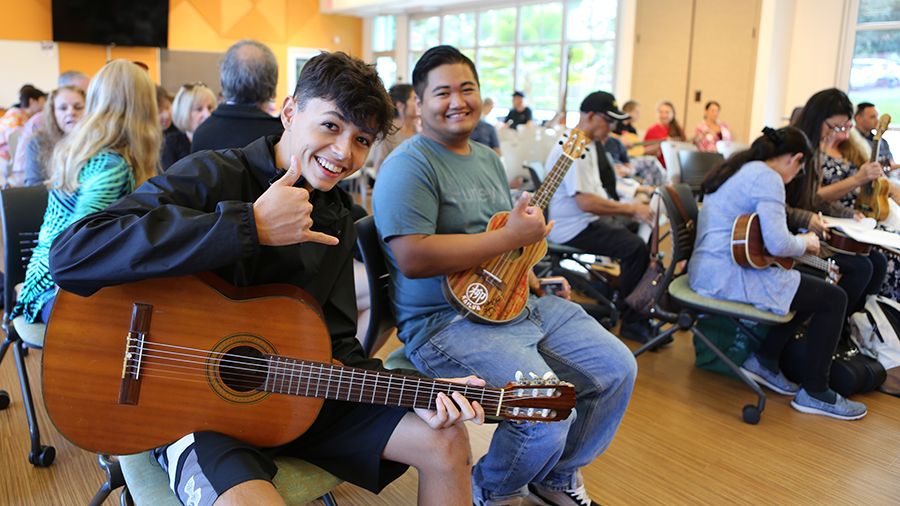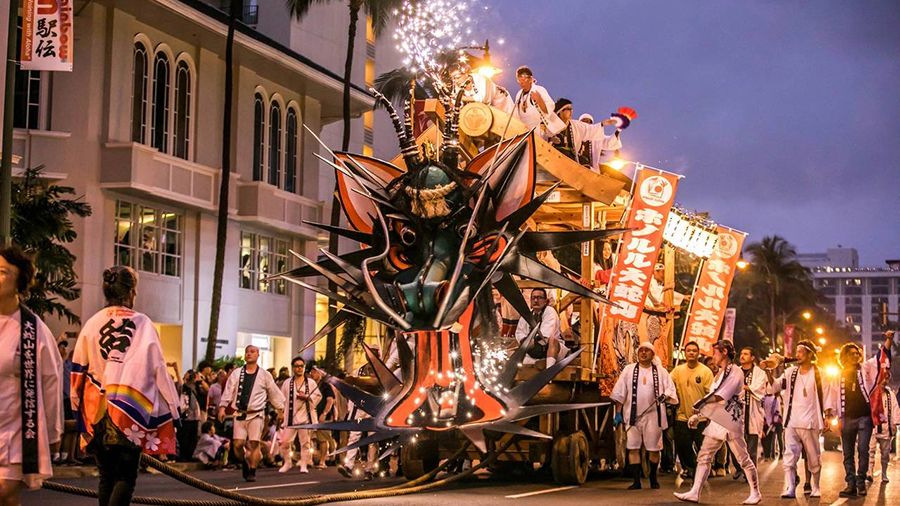HONOLULU — Honolulu Mayor Rick Blangiardi unveiled a plaque honoring the Glade in Chinatown, where māhū performers showcased their talents in a variety show in the 1960s and 1970s.
Māhū is a Hawaiian term for people with both masculine and feminine spirits.
The Glade was a nightclub known for its popular "Boys Will Be Girls Revue," which featured extravagantly dressed female impersonators and might be known as a drag show today. Until 1972, a Hawaii law criminalized cross-dressing and mandated māhū to wear an "I Am A Boy" button to avoid arrest. The Glade was a safe place for the LGBTQ+ māhū community to celebrate when harassment and persecution were high.
“This plaque serves as an enduring reminder of the unimaginable hardships and prejudices local people faced simply for expressing who they were. But it is also a tribute to their perseverance, because we are here today celebrating everything they have overcome through exceptional determination,” said Blangiardi in a statement. “This plaque will also become an educational attraction for visitors and residents, drawing them to a place with profound meaning and presenting lessons learned from the past, for current and future generations.”
On Friday, which was also International Pride Day, Kumu Hinaleimoana Wong-Kalu blessed the plaque after its unveiling on a column at Maunakea Marketplace’s N. Hotel Street entrance, the former site of the Glade, which is across from the Kekaulike Mall.
“Chinatown is a special place. Every street and storefront is filled with a unique history, one of cultural, social and ethnic diversity,” said Councilmember Tyler Dos Santos-Tam, who represents the Chinatown area, in a statement. “The Glade was a seminal part of this story. It served as a haven for artists, luminaries, and those who were considered ‘different.’ It’s part of the reason why Chinatown serves a similar role today.”
The plaque will now be the first stop in the Lei Pua ʻAla Queer History Trail, which is an educational walk being created by Joe Wilson and Dean Hamer. Other stops on the trail include Blaisdell Hotel, the birthplace of same-sex marriage; Kuhio District, Honolulu’s Gayborhood; and Kapaemahu, sacred stones in Waikiki. A trail guide can be found on Bloomberg Connects, a culture and arts app.
These historical photos show the Glade in its heyday:
